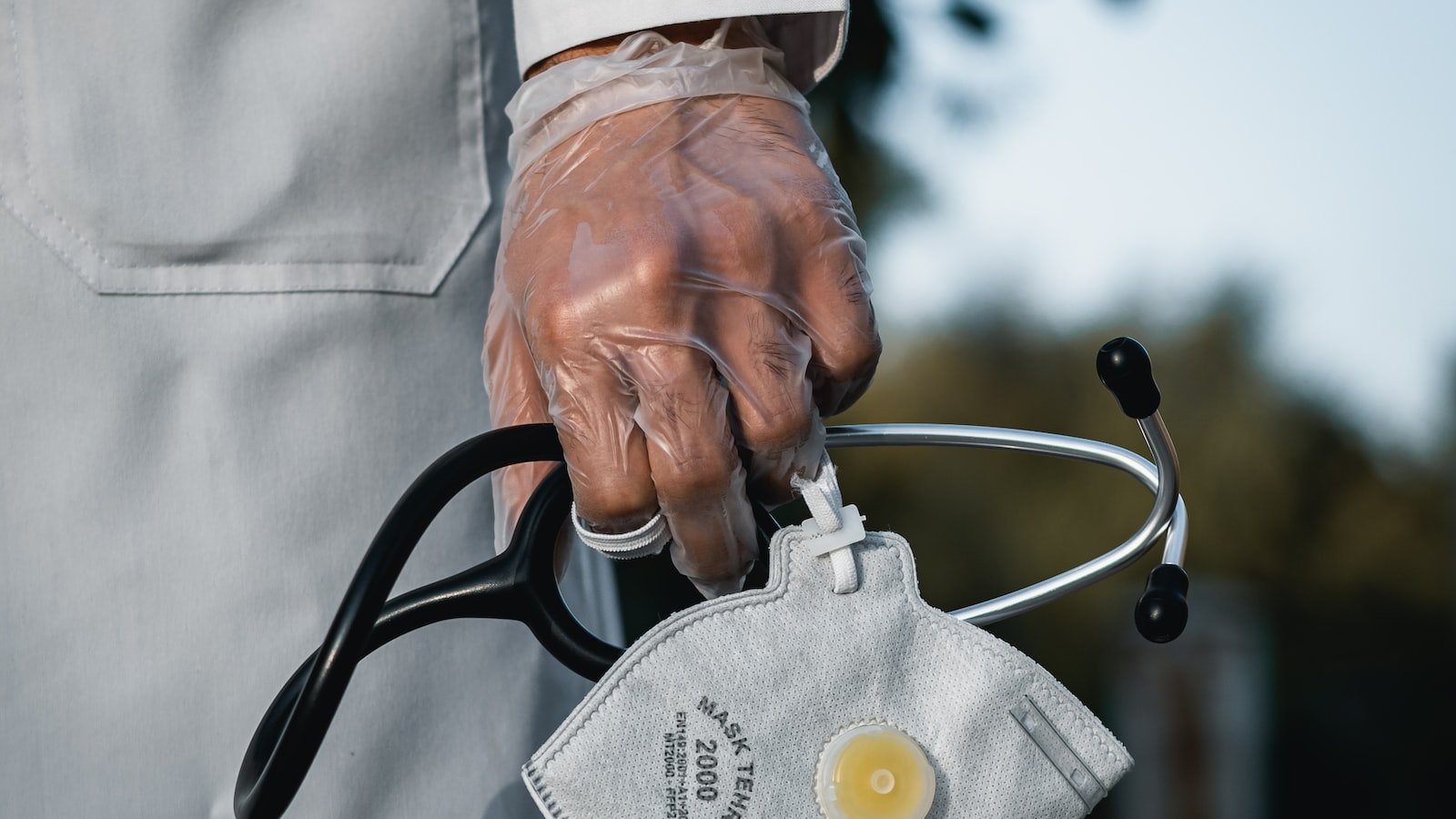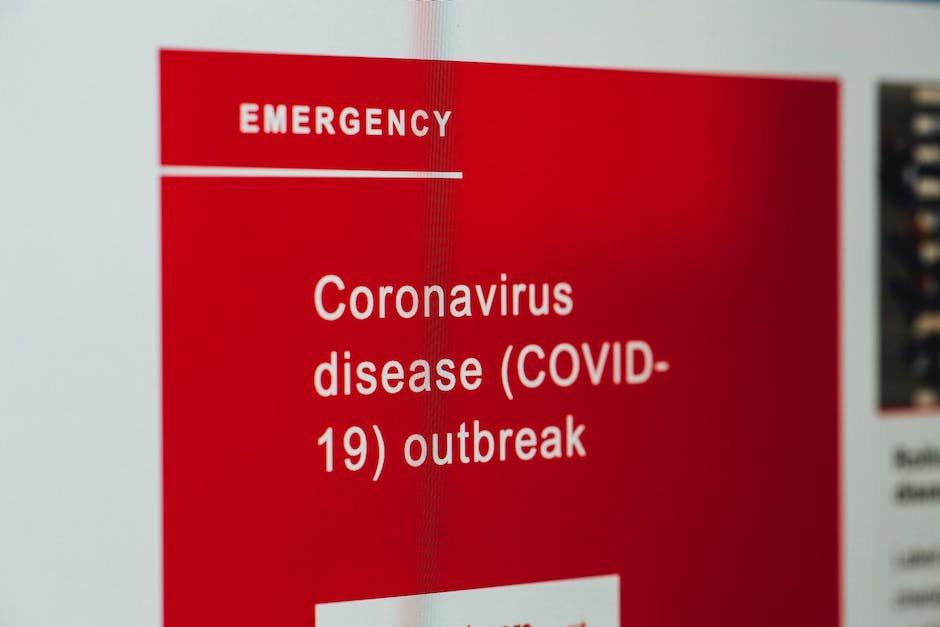Now Reading: Preparing for a Pandemic: Essential Supplies and Tips
-
01
Preparing for a Pandemic: Essential Supplies and Tips

Preparing for a Pandemic: Essential Supplies and Tips
The world as we know it has a way of humbling us when we least expect it. Just as we settle into the comforting rhythm of our daily lives, a shadow looms in the distance, reminding us of our vulnerability. Pandemics, those dreaded beasts lurking in the realm of possibility, have a way of disrupting our routines and shaking the very foundations of society. While we cannot predict the exact timing or severity of such events, one thing remains certain: preparedness is key. So, dear reader, as we embark on this journey together, let us delve into the realm of pandemic preparedness, equipped with essential supplies and invaluable tips, to ensure our safety and the well-being of our loved ones.
Table of Contents
- Pandemic Preparedness: Stocking Up on Essential Supplies
- Ensuring Access to Food, Medications, and First Aid during a Pandemic
- Maintaining Hygiene and Sanitation Practices: Essential Tips and Supplies
- Creating a Practical Emergency Plan for a Pandemic
- Staying Informed and Nurturing Mental Well-being during a Pandemic
- Q&A
- In Conclusion

Pandemic Preparedness: Stocking Up on Essential Supplies
During times of crisis, having a well-stocked supply of essential items can provide a sense of security and alleviate stress. As we face the ongoing challenges of the pandemic, it’s essential to ensure that you and your loved ones have the necessary supplies to weather any unforeseen circumstances. Here are some recommendations on what to include in your pandemic preparedness supplies:
- Food and Water:
- Non-perishable food items such as canned goods, dried fruits, and energy bars.
- Bottled water and water purification tablets.
- Hygiene and Sanitation:
- Hand sanitizer with at least 60% alcohol content.
- Soap, disinfectant wipes, and toilet paper.
- Personal hygiene products like toothpaste, toothbrushes, and menstrual supplies.
- Medicine and First Aid:
- Prescription medications with an ample supply.
- Pain relievers, cough syrups, and other over-the-counter medicines.
- A first aid kit stocked with bandages, antiseptic ointments, and medical gloves.
- Communication and Entertainment:
- A fully charged portable radio and spare batteries.
- Backup power banks for your cell phones and other essential devices.
- Board games, books, or puzzles to keep yourself and your loved ones occupied during any potential lockdowns.
Remember, stocking up on essential supplies is not about panic-buying or hoarding, but rather about being prepared and ensuring the well-being of your household. Be mindful of others’ needs and only purchase what you truly require to help build a resilient community in times of crisis.

Ensuring Access to Food, Medications, and First Aid during a Pandemic
During a pandemic, it is crucial to prioritize the well-being of individuals by ensuring uninterrupted access to food, medications, and first aid. With the global health crisis continuing its grip, it is essential to take proactive measures to guarantee these essential resources are readily available to everyone.
1. Food:
- Collaborate with local grocery stores to implement strict sanitization protocols to ensure food safety.
- Encourage the use of contactless delivery and pick-up options to minimize the risk of virus transmission.
- Offer financial assistance and support programs to vulnerable individuals and families for acquiring necessary food supplies.
2. Medications:
- Work closely with pharmaceutical companies to ensure an adequate supply chain for prescription medications.
- Facilitate home delivery services for individuals who are unable to visit pharmacies due to restrictions or health concerns.
- Implement online consultations and telemedicine services to provide remote medical assistance for prescription refills and minor ailments.
3. First Aid:
- Offer online first aid training courses to equip individuals with essential skills in case of emergencies.
- Promote the inclusion of first aid kits as part of households’ emergency preparedness plans.
- Collaborate with local authorities and organizations to establish community-based first aid centers for immediate assistance.
By adopting these measures during a pandemic, we can ensure that access to food, medications, and first aid remains uninterrupted, promoting the well-being and safety of individuals and communities.
Maintaining Hygiene and Sanitation Practices: Essential Tips and Supplies
Essential Tips and Supplies for Maintaining Hygiene and Sanitation Practices
When it comes to maintaining hygiene and sanitation practices, there are a few essential tips and supplies that can make a significant difference. Follow these guidelines to keep yourself and your surroundings clean and germ-free:
- Regular handwashing: Proper hand hygiene is crucial in preventing the spread of diseases. Wash your hands frequently for at least 20 seconds with soap and water, especially after using the restroom, before eating, and after handling objects touched by others.
- Disinfect frequently touched surfaces: Use disinfectant wipes or sprays to clean and disinfect commonly touched surfaces such as doorknobs, light switches, keyboards, and countertops. Regular disinfection helps in eliminating harmful germs and viruses.
- Keep hand sanitizers handy: While handwashing is essential, it might not always be feasible. Carry a travel-sized hand sanitizer with at least 60% alcohol content to sanitize your hands on the go when soap and water are not readily available.
Additionally, it is crucial to maintain personal hygiene practices such as keeping your nails trimmed and clean, wearing clean clothes, and practicing proper oral care. Remember, taking these measures not only protects your health but also contributes to the overall well-being of your community. Stay clean, stay healthy!
Creating a Practical Emergency Plan for a Pandemic
When it comes to preparing for a pandemic, having a practical emergency plan is essential. Uncertainties may surround us, but having a well-thought-out strategy can bring some much-needed peace of mind. Here are a few key steps to consider when creating your emergency plan:
- Assess Your Risks: Start by evaluating your personal risks and vulnerabilities. Consider your age, pre-existing conditions, and any factors that may increase your susceptibility to the virus.
- Gather Essential Supplies: It’s crucial to stock up on essential items to endure a pandemic. This includes food with long shelf life, drinking water, necessary medications, hygiene products, and basic medical supplies.
- Plan for Isolation: Include measures to self-isolate to reduce the risk of infection and spread. Identify a dedicated room or area within your home for quarantine purposes, and ensure you have enough supplies to sustain yourself and your family for an extended period.
- Stay Informed: Keep a close eye on reputable sources of information, such as official health authorities, and stay updated on the latest guidelines and recommendations. Accurate knowledge can help you make informed decisions during uncertain times.
- Maintain Communication: Establish reliable communication channels with your loved ones and establish a plan to check in regularly. This will ensure everyone’s safety and enable you to support each other emotionally and practically.
Remember, creating an emergency plan is not a cause for panic, but an act of prudence. By being prepared, you can better navigate the challenges posed by a pandemic and protect yourself and your loved ones effectively.
Staying Informed and Nurturing Mental Well-being during a Pandemic
In these uncertain times, it is crucial to prioritize both staying informed and taking care of our mental well-being. Here are some tips and suggestions to help you navigate through the challenges of a pandemic while maintaining a healthy mind:
- Stay updated, but limit exposure: While it’s important to stay informed about the latest news and guidelines, it’s equally necessary to strike a balance. Constant exposure to news updates can lead to feelings of anxiety and overwhelm. Allocate specific times to gather information from reliable sources and limit your intake afterwards.
- Establish a routine: With uncertainties surrounding us, creating a consistent daily routine can bring a sense of stability. Start your day with activities that help you focus and uplift your spirits, such as meditating, exercising, or even enjoying a cup of tea. Embracing structure can promote a positive mindset.
- Take breaks and engage in self-care: Be mindful of your mental health and indulge in self-care activities. Allocate time to unwind with hobbies, listen to soothing music, read a book, or pamper yourself with a bubble bath. Prioritizing self-care nurtures your mental well-being and fosters resilience.
Remember, this challenging time shall pass, and it’s crucial to be gentle with yourself and those around you. Staying informed while nurturing your mental health will help you maintain a balance, find comfort, and navigate through the pandemic with strength and resilience.
Q&A
Q: What essential supplies should I have in preparation for a pandemic?
A: It is important to have a supply of non-perishable food items, such as canned goods and dry goods, as well as a stock of essential medications, cleaning supplies, and toiletries. Additionally, be sure to have enough face masks, gloves, and hand sanitizers to maintain good hygiene.
Q: How much food should I stockpile in case of a pandemic?
A: It is recommended to have at least a two-week supply of food for each member of your household. Aim for nutrient-dense, easy-to-store items like rice, pasta, canned vegetables, and dried fruits. Don’t forget to regularly rotate your stockpile to keep it fresh.
Q: Should I get extra medications and medical supplies?
A: Yes, it is advisable to have a 30-day supply of prescription medications on hand. Additionally, stock up on over-the-counter medicines like pain relievers, cough syrup, and fever reducers. First aid supplies, such as bandages and antiseptics, should also be included.
Q: How can I ensure good hygiene during a pandemic?
A: Regularly washing your hands with soap and water for at least 20 seconds is crucial. If water is unavailable, use a hand sanitizer with at least 60% alcohol. Avoid touching your face, wear a mask in public, and practice proper respiratory hygiene by coughing or sneezing into your elbow or a tissue.
Q: Is it essential to have a backup power supply?
A: While a backup power supply may be useful, especially if you rely on medical equipment, it is not essential for everyone. However, having extra batteries and portable chargers for phones and other electronic devices can be helpful in case of power outages.
Q: How can I prepare financially for a pandemic?
A: It is recommended to have some cash on hand in case of emergency, as ATMs and online banking services may become less accessible. Create a budget and set aside an emergency fund to cover essential expenses like food, rent, and utilities.
Q: What should I do if I feel unwell during a pandemic?
A: If you develop symptoms, stay home and self-isolate to avoid spreading the virus. Contact your healthcare provider for guidance and follow their instructions. It’s important to have a plan in place, know the local health hotline number, and be informed about testing facilities and protocols in your area.
Q: How can I stay mentally and physically healthy during a pandemic?
A: Staying connected with loved ones, maintaining a routine, and engaging in activities you enjoy can support your mental well-being. Regular exercise at home, eating balanced meals, and getting enough sleep are essential for physical health. Keep updated with accurate information but also balance news consumption to avoid overwhelming yourself.
In Conclusion
In a world that often seems tirelessly connected and perpetually bustling, it’s easy to forget that beneath the layers of our everyday routines lies the potential for unexpected chaos. The notion of a pandemic may have previously been confined to the realm of dystopian novels and blockbuster movies, but recent events have served as a resounding wake-up call that nature holds the power to disrupt our lives in unimaginable ways. As we’ve witnessed the rapid spread of illnesses and the crippling effects they can have on our society, it has become abundantly clear that preparedness is no longer an option – it is a necessity.
In this article, we have delved into the intricate art of preparing for a pandemic, unraveled the complex web of essential supplies, and offered invaluable tips to navigate these uncertain times with grace. We have explored the vital role of having a well-stocked emergency kit, symbolizing a beaming beacon of reassurance in the face of adversity. These humble provisions, meticulously chosen and diligently maintained, possess the power to safeguard our health and sanity when the world around us teeters on the edge.
Yet, preparedness extends far beyond the tangible confines of supplies. It is a mindset, a state of readiness that transcends the physical realm. We have journeyed through the intangible corridors of knowledge, urging readers to arm themselves with accurate information from credible sources, shielded from the virulent spread of misinformation. We have illuminated the importance of fostering emotional resilience, emphasizing the significance of self-care and maintaining connections during times of isolation.
Amidst the chaos and uncertainty, humanity has always found solace in unity and collective action. By weaving together the threads of compassion and community spirit, we have discovered that the strength of our defenses lies not solely in our own preparedness, but in our obligation to protect and support one another. From simple acts of kindness to practical assistance, every effort counts in building a fortified shield against the storm that may lie ahead.
As we conclude this journey through the realm of preparedness, let us remember that vigilant preparedness is not synonymous with fear, but rather an expression of wisdom and responsibility. It is a quiet fortitude – a testament to our adaptability, our resilience, and our ability to conquer even the most formidable challenges.
In the end, it is not the looming specter of a pandemic that defines us, but rather our response to it. Let us emerge from the aftermath of these trying times with an ever-strengthened resolve, preparedness entrenched deep within the very fiber of our existence. For while the storm might rage, we shall stand tall, fortified with the essential supplies and unwavering determination to face whatever comes our way.
As an affiliate, my content may feature links to products I personally use and recommend. By taking action, like subscribing or making a purchase, you’ll be supporting my work and fueling my taco cravings at the same time. Win-win, right?
Want to read more? Check out our Affiliate Disclosure page.





